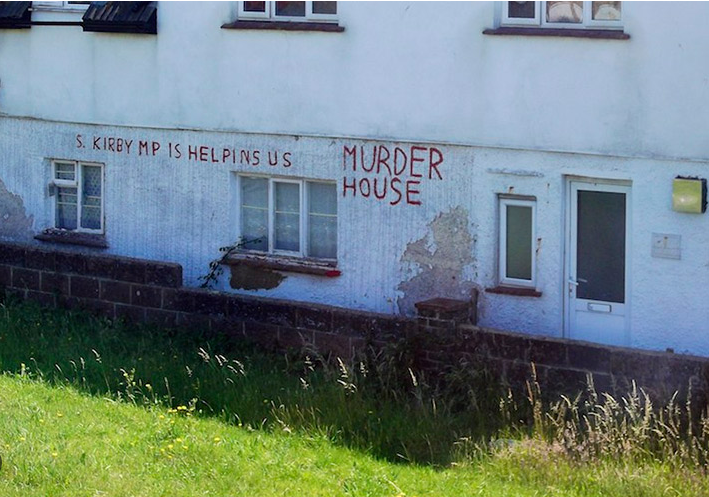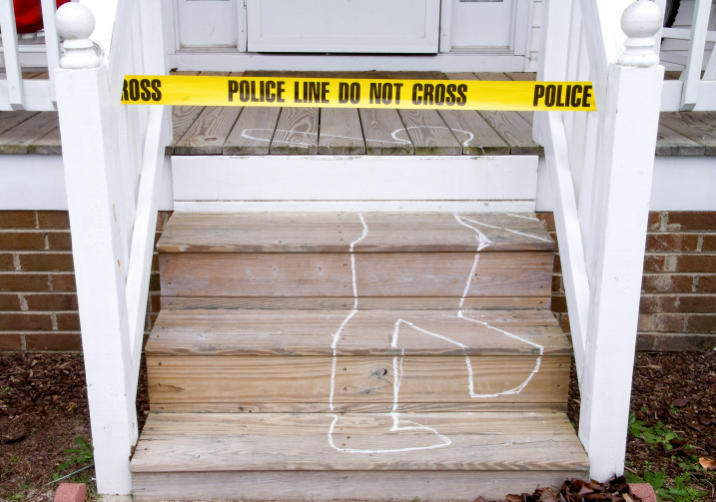What You Need to Know about Stigmatized Property


Before purchasing a property, it’s crucial to conduct thorough research on your potential investment. A home that initially seems like a great deal could have a history that negatively affects its value. To avoid or prepare for buying what’s known as a stigmatized property, make sure to ask the seller’s agent specific questions and do some online investigation.
What is stigmatized property?
So, what exactly is a stigmatized property? According to the National Association of Realtors, a stigmatized property is one that has been psychologically impacted by an event that occurred or was suspected to have occurred on the premises. However, these events don’t leave any physical damage to the home.
The definition may seem broad, which is part of the challenge with stigmatized properties. Although these homes may be in excellent condition both before and after the event, their negative reputation can deter many potential buyers. It all comes down to how people perceive the house due to what happened there.
This could include previous owners being involved in criminal activities, a murder occurring in the house, or even a history of paranormal activity. If you’re a potential buyer who can look past any negative associations, a stigmatized property might offer a great deal, especially for first-time buyers or those looking for a more affordable home. However, there are a few factors to consider before making such a purchase.
Stigmatized property types
The stigma attached to a home is often as unique as the property itself, and people react differently to various stigmas. While some may not be bothered by a haunted house, a history of criminal activity might be more concerning due to the possibility of attracting unsavory visitors. When considering a stigmatized property, it’s important to assess your own comfort level with the potential challenges and the specific stigma involved.
Haunted or paranormal activity stigma
Some people might be put off by unexplained phenomena like strange noises, moving furniture, or sudden temperature drops, while others might find it intriguing or even a selling point. Paranormal activity is not considered a “material fact” in real estate, so it usually won’t appear on standard property disclosures. To find out if any haunted happenings occurred, you’ll likely need to ask the previous owners through their agent and hope they’re forthcoming.
Public criminal activity stigma
If a home has a history of illegal activities, such as drug dealing, prostitution, or being associated with a registered sex offender, public perception is likely affected. While criminally stigmatized properties might be offered at a lower price, they can come with significant downsides. Neighbors may have strong opinions, and there’s a risk that individuals involved in past criminal activities might unknowingly return to the property, unaware of its new ownership. Additionally, being located in a high-crime area could result in higher home insurance premiums.
Death stigma
Typically, a natural death in a home doesn’t create a stigma unless the body was left undiscovered for an extended period. However, if the death was a result of murder or suicide, the property often becomes stigmatized. If you’re a buyer interested in finding a good deal, a death-related stigma might not be a major concern for you.
Debt stigma
If the previous owners had significant debts, their home might carry a stigma from aggressive collectors frequently visiting. As a potential buyer, you should be prepared to inform any lingering collectors that the previous owners have moved. Additionally, it’s wise to check for any outstanding property taxes to ensure there are no tax liens attached to the home.
Considerations to make when dealing with stigmatized property

Stigmatized properties are influenced not just by reputation but also by state laws and real estate practices, which can impact how these properties are handled during a purchase or sale.
State disclosures for stigmatized property
Real estate agents aren’t always required to disclose a property’s stigma, as disclosure laws vary widely across the country. While some federal laws exist—like the requirement to disclose the presence of lead paint—each state has its own specific regulations. Here are a few notable examples:
- California: Unlike many states, California law mandates that any death in the home within the past three years, including natural deaths, must be disclosed to a potential buyer.
- Minnesota: In Minnesota and several other states, real estate professionals must legally disclose if the property was used to manufacture methamphetamine.
- Alaska: Alaska law requires the disclosure of any murders or suicides on the property within the past three years, as well as the presence of any human burial sites.
Before listing your home, it’s important to ask your real estate agent about your state’s specific property disclosure requirements and any circumstances that might apply to your sale.
Buying stigmatized property
A real estate agent may not immediately mention a property’s stigma, but you can directly ask if a house is stigmatized. To avoid legal issues, most agents will provide an honest answer. When considering a stigmatized property, think about whether the stigma will bother you and how it might affect your ability to sell the house in the future. Some stigmas, like those related to death or debt, may diminish over time, while others, such as associations with sex offenders or paranormal activity, may persist and impact resale.
Pros:
- You might be able to purchase the property at a reduced price due to the stigma.
Cons:
- You may need to deal with lingering effects of the stigma, such as visits from debt collectors or people seeking illegal activities.
- Selling the house in the future could be more challenging.
Selling stigmatized property
If you already own a stigmatized property and want to move on, it’s helpful to be transparent with your real estate agent about the situation. They can assist in marketing the house despite the stigma. Additionally, take steps to mitigate any issues that might deter potential buyers. For instance, if debt collectors are persistent, consider providing them with your new address instead of the property you’re trying to sell.
Pros:
- Some buyers might be attracted to the stigma, especially if they’re looking for a bargain or are interested in unique aspects, like ghost hunters searching for a haunted house.
Cons:
- You may need to accept a lower selling price due to the stigma attached to the property.








